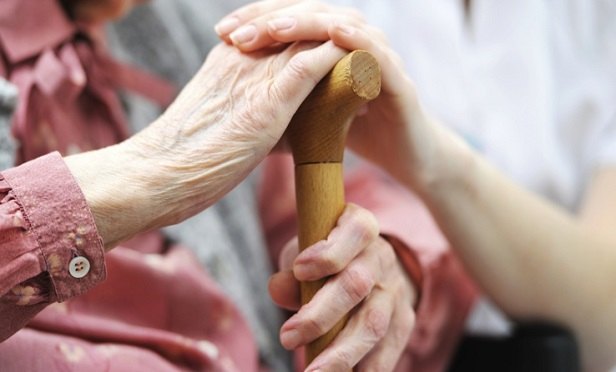 A February 21 report from the CDC shows that nearly 1 in 5 family caregivers may be in fair or poor health–and it's likely gotten worse. (Photo: Shutterstock)
A February 21 report from the CDC shows that nearly 1 in 5 family caregivers may be in fair or poor health–and it's likely gotten worse. (Photo: Shutterstock)
The issue of paid family leave has certainly garnered the attention of organizations and the government during COVID-19. But to quote from a recent article: "ending the conversation about caregiver support on paid leave would fall short of effectively supporting employee caregivers. From a caregiver's perspective, paid leave should be the tip of the iceberg when offering support to caregivers."
Health providers have had a bad track record when it comes to caring for the family caregiver. A recent national study in JAMA found that while most caregivers reported that older adults' health care workers always or usually listened to them and always or usually asked about their understanding of the older adult's treatments; fewer caregivers reported being always (21.3 percent) or usually (6.9 percent) asked whether they needed help managing older adults' care. Nearly one-half (45.0 percent) were never asked.
Recommended For You
Complete your profile to continue reading and get FREE access to BenefitsPRO, part of your ALM digital membership.
Your access to unlimited BenefitsPRO content isn’t changing.
Once you are an ALM digital member, you’ll receive:
- Breaking benefits news and analysis, on-site and via our newsletters and custom alerts
- Educational webcasts, white papers, and ebooks from industry thought leaders
- Critical converage of the property casualty insurance and financial advisory markets on our other ALM sites, PropertyCasualty360 and ThinkAdvisor
Already have an account? Sign In Now
© 2025 ALM Global, LLC, All Rights Reserved. Request academic re-use from www.copyright.com. All other uses, submit a request to [email protected]. For more information visit Asset & Logo Licensing.








